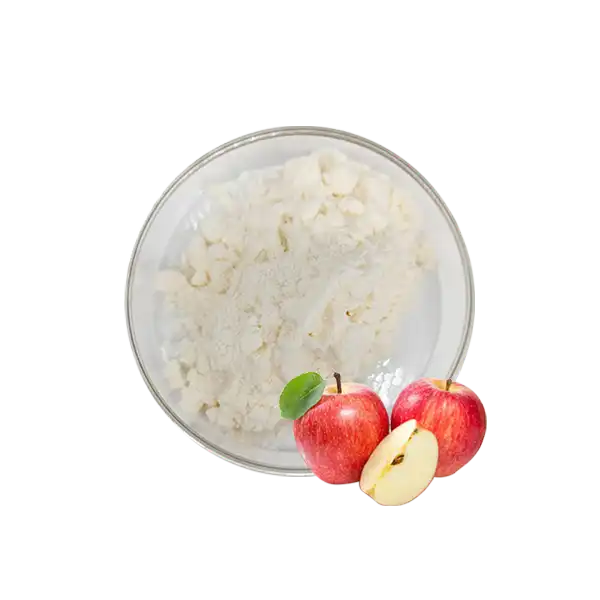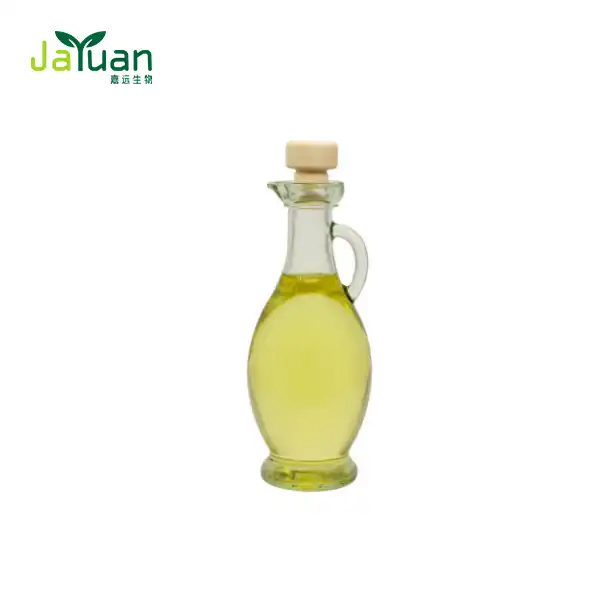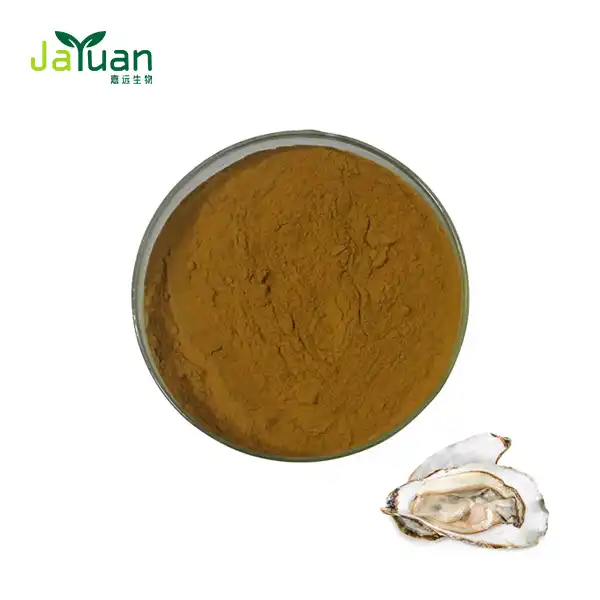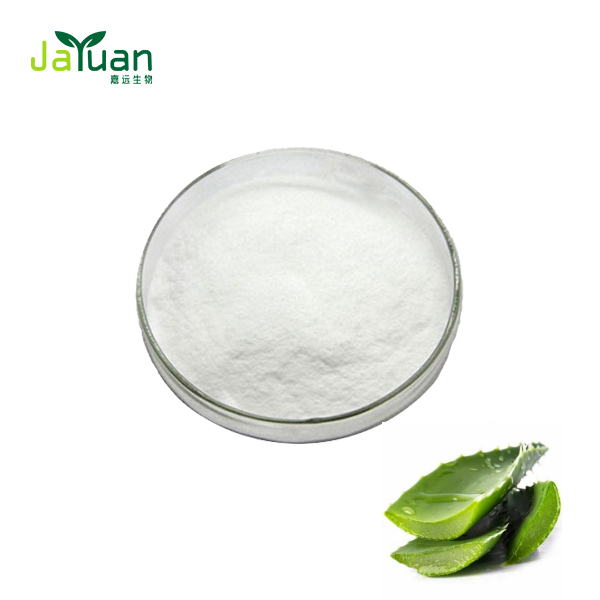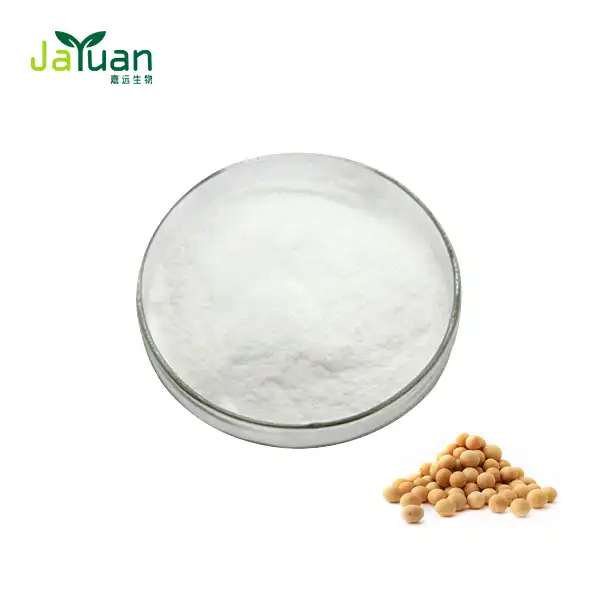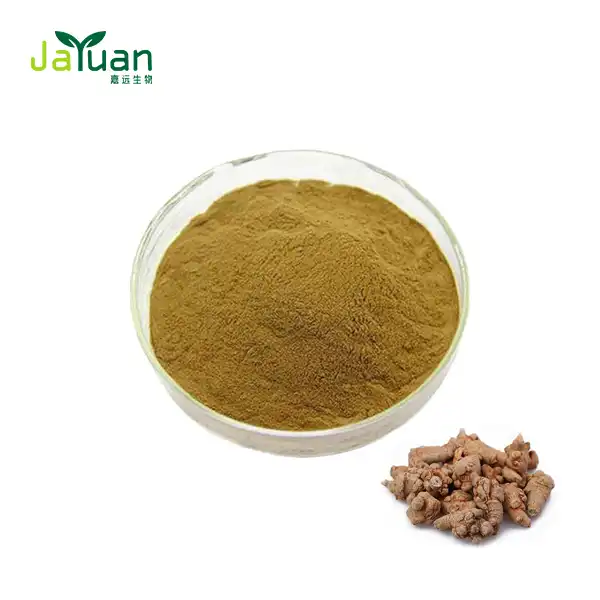Rosmarinic Acid Powder: A Natural Antioxidant
In the world of natural health supplements, rosmarinic acid powder has emerged as a potent antioxidant with a wide range of potential benefits. This remarkable compound, derived from various herbs in the Lamiaceae family, has captured the attention of researchers and health enthusiasts alike. Let's delve into the fascinating world of rosmarinic acid and explore its properties, benefits, and applications.

Why Rosmarinic Acid Is a Powerful Antioxidant
Rosmarinic acid, a natural phenolic compound, boasts impressive antioxidant properties that set it apart from many other substances. Its molecular structure allows it to neutralize harmful free radicals effectively, protecting cells from oxidative stress and damage.
The antioxidant prowess of rosmarinic acid is particularly noteworthy when compared to other well-known antioxidants. Studies have shown that rosmarinic acid exhibits stronger antioxidant activity than vitamin E, caffeic acid, and even some synthetic antioxidants. This exceptional potency makes it a valuable asset in the fight against oxidative stress-related conditions.
One of the key mechanisms behind rosmarinic acid's antioxidant action is its ability to scavenge reactive oxygen species (ROS) and reactive nitrogen species (RNS). These highly reactive molecules can cause cellular damage and contribute to various health issues. By neutralizing these harmful compounds, rosmarinic acid helps maintain cellular integrity and supports overall health.
Moreover, rosmarinic acid has been found to enhance the body's natural antioxidant defenses. It can stimulate the production of endogenous antioxidant enzymes, such as superoxide dismutase and catalase, further bolstering the body's ability to combat oxidative stress.
The antioxidant properties of rosmarinic acid extract extend beyond mere cellular protection. Research suggests that it may also play a role in reducing inflammation, supporting cardiovascular health, and even potentially offering neuroprotective benefits. These wide-ranging effects highlight the versatility and potential of rosmarinic acid as a natural health-promoting compound.
Rosmarinic Acid for Skin Health and Beauty
The benefits of rosmarinic acid extend beyond internal health, making it a valuable ingredient in skincare and beauty products. Its antioxidant and anti-inflammatory properties make it particularly well-suited for promoting skin health and addressing various dermatological concerns.
One of the primary ways rosmarinic acid benefits the skin is by protecting it from environmental stressors. UV radiation, pollution, and other external factors can generate free radicals that damage skin cells, leading to premature aging and other skin issues. Rosmarinic acid's potent antioxidant activity helps neutralize these harmful molecules, potentially reducing the signs of photoaging and maintaining a youthful appearance.
Inflammation is a common underlying factor in many skin conditions, including acne, eczema, and psoriasis. Rosmarinic acid's anti-inflammatory properties may help alleviate these conditions by reducing redness, swelling, and irritation. This makes it a promising natural alternative for those seeking gentler skincare solutions.
Collagen, a crucial protein for skin elasticity and firmness, can be degraded by certain enzymes and oxidative stress. Rosmarinic acid powder has been shown to inhibit these collagen-degrading enzymes, potentially helping to maintain skin structure and reduce the appearance of fine lines and wrinkles.
Furthermore, rosmarinic acid may help regulate sebum production, making it beneficial for those with oily or acne-prone skin. By balancing oil production and possessing antimicrobial properties, it could help prevent clogged pores and reduce the occurrence of acne breakouts.
The compound's ability to improve skin hydration is another noteworthy benefit. Rosmarinic acid has been found to enhance the skin's natural moisture barrier, helping to keep the skin hydrated and supple. This can be particularly beneficial for those with dry or sensitive skin types.
Given its diverse range of skin benefits, rosmarinic acid is increasingly being incorporated into various skincare products, from serums and moisturizers to targeted treatments for specific skin concerns. Its natural origin and gentle action make it suitable for a wide range of skin types, including sensitive skin.

Sources and Purity of Rosmarinic Acid Powder
Rosmarinic acid is found naturally in various plants, primarily those belonging to the Lamiaceae family. Some of the richest sources include rosemary, sage, oregano, and lemon balm. However, when it comes to obtaining rosmarinic acid powder for supplementation or product formulation, the extraction and purification process is crucial.
The extraction of rosmarinic acid typically involves using solvents to isolate the compound from plant material. Common methods include liquid-liquid extraction, solid-phase extraction, and supercritical fluid extraction. Each method has its advantages and can yield different levels of purity.
The purity of rosmarinic acid powder is a critical factor in its effectiveness and safety. High-quality rosmarinic acid powder should have a purity level of at least 98%. This ensures that the product contains minimal impurities and provides the maximum potential benefits.
When sourcing rosmarinic acid powder, it's essential to consider the following factors:
- Source plant: Different plants may yield rosmarinic acid with slightly different properties. Rosemary and sage are among the most common sources.
- Extraction method: The chosen extraction method can affect the final product's purity and potency.
- Standardization: Look for products that are standardized to a specific percentage of rosmarinic acid content.
- Third-party testing: Reputable suppliers should provide certificates of analysis from independent laboratories, verifying the purity and potency of their rosmarinic acid powder.
- Sustainability: Consider suppliers who use sustainable sourcing practices to ensure the long-term availability of rosmarinic acid.
It's worth noting that the bioavailability of rosmarinic acid can vary depending on its form and the presence of other compounds. Some studies suggest that certain formulations or combinations may enhance its absorption and effectiveness.
For those interested in incorporating rosmarinic acid into their health or beauty regimen, it's crucial to choose a high-quality source. Reputable suppliers of natural plant extracts, such as Xi'an Jayuan Bio-Tech, offer rosmarinic acid powder that meets stringent quality standards.
When selecting a rosmarinic acid powder, consider factors such as purity, source, extraction method, and third-party testing to ensure you're getting a product that can deliver the desired benefits. Whether you're a manufacturer looking to incorporate rosmarinic acid into your products or an individual interested in its potential health benefits, choosing a high-quality source is key to harnessing the full potential of this remarkable natural compound.

Conclusion
Rosmarinic acid powder stands out as a powerful natural antioxidant with a wide range of potential applications. From its impressive ability to combat oxidative stress to its promising benefits for skin health and beauty, rosmarinic acid continues to captivate researchers and health enthusiasts alike. As we uncover more about this remarkable compound, it's clear that rosmarinic acid has a significant role to play in natural health and wellness solutions.
If you're interested in learning more about rosmarinic acid powder or exploring its potential for your products, we invite you to reach out to our team at Xi'an Jayuan Bio-Tech. Our expertise in natural plant extracts and commitment to quality make us an ideal partner for your rosmarinic acid needs. Contact us at sales@jayuanbio.com to discuss how we can support your projects with our high-quality rosmarinic acid powder.
References
- Petersen, M., & Simmonds, M. S. (2003). Rosmarinic acid. Phytochemistry, 62(2), 121-125.
- Amoah, S. K., Sandjo, L. P., Kratz, J. M., & Biavatti, M. W. (2016). Rosmarinic acid--pharmaceutical and clinical aspects. Planta Medica, 82(05), 388-406.
- Bulgakov, V. P., Inyushkina, Y. V., & Fedoreyev, S. A. (2012). Rosmarinic acid and its derivatives: biotechnology and applications. Critical Reviews in Biotechnology, 32(3), 203-217.
- Shekarchi, M., Hajimehdipoor, H., Saeidnia, S., Gohari, A. R., & Hamedani, M. P. (2012). Comparative study of rosmarinic acid content in some plants of Labiatae family. Pharmacognosy Magazine, 8(29), 37.
- Sánchez-Campillo, M., Gabaldon, J. A., Castillo, J., Benavente-García, O., Del Baño, M. J., Alcaraz, M., ... & Lozano, J. A. (2009). Rosmarinic acid, a photo-protective agent against UV and other ionizing radiations. Food and Chemical Toxicology, 47(2), 386-392.
- Ferlemi, A. V., & Lamari, F. N. (2016). Berry leaves: An alternative source of bioactive natural products of nutritional and medicinal value. Antioxidants, 5(2), 17.

